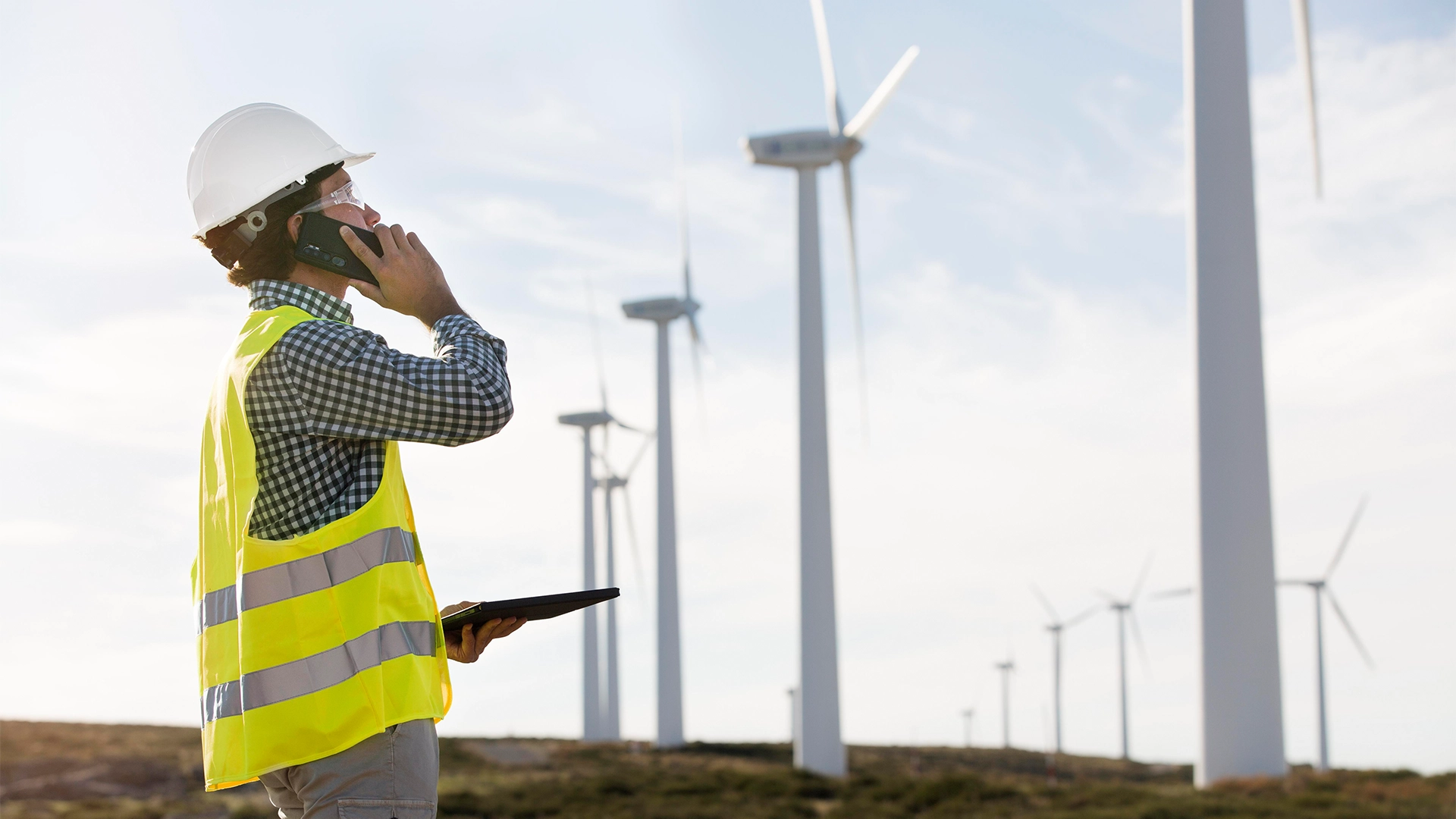Harnessing Best Practices in Civil Construction for Renewable Energy
In the rapidly evolving landscape of energy production, civil construction for renewable energy stands out as a cornerstone of sustainable development. As the world pivots towards greener alternatives, the construction of wind farms has become increasingly vital. But how can developers and contractors ensure their projects are not only successful but also environmentally responsible?
In this blog post, we will delve into the best practices in civil construction for renewable energy, specifically tailored for the wind farm sector. This topic is essential for developers, EPCs, investors, utilities, and consultants who seek to optimise their projects and align with the growing demand for sustainability. By understanding and implementing these best practices, you can enhance project outcomes, mitigate risks, and ultimately contribute to a cleaner energy future.
We will explore critical areas such as site selection, environmental impact assessments, and sustainable material usage. Each of these components plays a significant role in not only reducing the ecological footprint of wind farm construction but also ensuring compliance with safety standards and regulations. By adhering to these best practices, you can position your projects for success, making them a model for future developments in the renewable energy space.
This discussion is particularly relevant as we link these practices back to our hub topic, wind farm construction. As you navigate the complexities of your projects, understanding these best practices will empower you to make informed decisions that benefit both your organisation and the environment. At SBL Solutions, we pride ourselves on being a trusted partner in this journey, offering expertise in civil works, project management, and compliance best practices that can elevate your renewable energy projects.
If you’re looking to enhance your understanding of these best practices or need expert guidance, we invite you to contact us for more information. Together, we can turn your renewable energy vision into reality.
What is Civil Construction for Renewable Energy?

Civil construction for renewable energy involves the planning, design, and execution of infrastructure that supports the generation of renewable power from sources like wind, solar, and hydroelectric energy. This includes critical activities such as site preparation, building access roads, laying foundations for energy structures, and installing electrical systems. By adhering to best practices in civil construction, projects can be carried out efficiently, sustainably, and safely, maximizing the potential of renewable energy resources.
As a crucial part of renewable power projects especially wind farms civil construction requires strong project management, rigorous safety compliance, and thorough environmental consideration. Many of these projects take place in remote or challenging locations, making a deep understanding of local conditions and regulations essential. For wind farms, this means selecting sites that not only facilitate smooth turbine installation but also ensure accessibility for ongoing maintenance, securing both long-term operational success and environmental sustainability.
Best practices in civil construction for renewable energy go beyond simply meeting regulatory requirements—they play a critical role in preserving the site and surrounding ecosystem. Techniques such as effective soil management and erosion control help maintain site integrity while supporting the operational goals of the wind farm. By integrating these practices, civil construction not only advances renewable power generation but also reinforces the commitment to sustainable development, aligning infrastructure projects with the broader environmental goals of the renewable energy sector.
A common misconception about civil construction for renewable energy is that it merely involves the physical building of structures. In reality, it encompasses a holistic approach that includes stakeholder engagement, environmental stewardship, and compliance with safety standards. At SBL Solutions, we understand that our role extends beyond construction; we are partners in delivering high-quality, sustainable energy solutions. Our expertise in civil works, project management, and logistics ensures that we navigate the complexities of renewable energy projects effectively, delivering outcomes that benefit both our clients and the environment. To learn more about our approach to wind farm construction, visit SBL Solutions.
Weighing the Benefits and Drawbacks of Civil Construction for Renewable Energy
As the demand for renewable energy continues to rise, understanding the pros and cons of civil construction in this sector becomes essential. This section will explore the advantages and disadvantages of implementing best practices in civil construction for renewable energy projects.
Pros
Sustainable Development
Civil construction for renewable energy promotes sustainable development by utilising eco-friendly materials and reducing carbon footprints, thereby contributing to a greener future.
Enhanced Project Efficiency
Implementing best practices in civil construction leads to improved project efficiency, minimising delays and optimising resource use, which is crucial for meeting tight deadlines.
Job Creation
Investing in renewable energy construction generates numerous job opportunities, from skilled trades to project management, thus boosting local economies.
Long-term Cost Savings
Although initial investments may be high, civil construction for renewable energy can result in long-term savings on operational costs and maintenance due to the durability and efficiency of modern materials.
Innovation and Technological Advancement
The sector encourages ongoing innovation, as companies seek to integrate new technologies that enhance construction techniques and energy efficiency.
Cons
High Initial Costs
The upfront costs associated with civil construction for renewable energy projects can be significant, which may deter some investors and developers.
Regulatory Challenges
Navigating the complex regulatory environment surrounding renewable energy can pose a challenge, potentially leading to project delays or increased costs.
Logistical Complications
Constructing in remote or challenging environments can complicate logistics, impacting timelines and budget management.
Environmental Impact Concerns
Despite the sustainability goals, certain civil construction practices may still result in temporary environmental disturbances, which can lead to community pushback.
Skill Shortages
The rapid growth in the renewable energy sector has led to a shortage of skilled labour in civil construction, which can affect project quality and timelines.
In summary, while civil construction for renewable energy presents numerous benefits, such as sustainability and cost savings, it also comes with challenges, including high initial costs and regulatory hurdles. By carefully weighing these pros and cons, stakeholders can make informed decisions that align with their goals and the broader objective of advancing renewable energy initiatives.
Frequently Asked Questions about Civil Construction for Renewable Energy
In this section, we address some common questions related to best practices in civil construction for renewable energy projects. Whether you’re starting a new project or seeking to optimise existing processes, we’ve got you covered.
What are the best practices for site selection in civil construction for renewable energy?
When selecting a site for renewable energy projects, factors such as wind patterns, environmental impact, and access to infrastructure are critical. We recommend conducting thorough feasibility studies and assessments to ensure the location not only supports efficient energy generation but also complies with local regulations and environmental considerations.
How important is safety compliance in civil construction for renewable energy projects?
Safety compliance is paramount in civil construction for renewable energy. It ensures the well-being of workers and the integrity of the project. At SBL Solutions, we implement rigorous safety protocols and training programmes to mitigate risks and promote a culture of safety on-site.
What role does project management play in civil construction for renewable energy?
Effective project management is essential for the successful delivery of renewable energy projects. It involves coordinating resources, managing timelines, and ensuring compliance with quality standards. Our experienced project managers at SBL Solutions ensure that every aspect of the project is meticulously planned and executed, minimising delays and budget overruns.
What materials are commonly used in civil construction for renewable energy projects?
Common materials include reinforced concrete, steel, and sustainable options like recycled materials. The choice of materials depends on the specific requirements of the project, such as durability, environmental impact, and cost-effectiveness. We prioritise using materials that align with sustainability goals while ensuring structural integrity.
How can I ensure my civil construction project is environmentally friendly?
To ensure an environmentally friendly project, focus on sustainable design practices, minimise waste, and consider the use of renewable resources. Regular environmental assessments throughout the construction phase can help identify and mitigate potential impacts. At SBL Solutions, we integrate sustainability into our project planning and execution.
What are the challenges faced in civil construction for renewable energy?
Challenges can include harsh weather conditions, logistical issues in remote locations, and regulatory hurdles. Each project is unique, and careful planning and adaptability are essential. Our team at SBL Solutions has the expertise to navigate these challenges and deliver successful outcomes, even in the most demanding environments.
We hope these FAQs have clarified some of the common queries regarding best practices in civil construction for renewable energy. If you have further questions or need assistance with your project, feel free to reach out to us at SBL Solutions.
Wrapping Up: The Vital Role of Civil Construction in Renewable Energy
In summary, the blog post has explored the essential aspects of Civil construction for renewable energy, highlighting best practices that ensure successful project delivery. From meticulous planning and site assessment to robust safety protocols and sustainable material usage, every step in the construction process plays a crucial role in the overall success of renewable energy projects. By adhering to these practices, we not only enhance project efficiency but also contribute to a more sustainable future.
Civil construction is not merely a foundation for renewable energy projects; it is the backbone that supports their viability and success. The insights shared in this post are designed to help you understand the importance of each practice and how they interconnect to create a seamless workflow. By implementing these best practices, you can ensure that your projects are completed on time, within budget, and in compliance with safety standards, ultimately benefiting both your organisation and the environment.
We encourage you to take the knowledge gained from this discussion and apply it in your future projects. Whether you’re involved in the planning stages or managing ongoing developments, embracing these best practices can lead to remarkable advancements in your civil construction efforts. Remember, every small change can make a significant impact on the success of renewable energy initiatives, particularly in the context of wind farm construction.
At SBL Solutions, we are dedicated to delivering high-quality outcomes in complex and remote energy projects. If you have any questions or need further assistance regarding civil construction for renewable energy, don’t hesitate to reach out. Visit our contact page to learn how we can support you in achieving your project goals.

